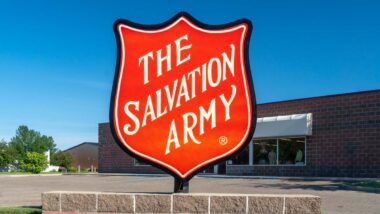Top Class Actions’s website and social media posts use affiliate links. If you make a purchase using such links, we may receive a commission, but it will not result in any additional charges to you. Please review our Affiliate Link Disclosure for more information.
Those who have been harassed or mistakenly contacted by debt collectors should be aware that they may have legal rights under the FDCPA. This includes people who do not have any accounts that may currently be in collections and are being pressured to pay on debts they don’t even owe (the most common complaint about debt collectors) or are being contacted for information on friends or family members who may have bills outstanding.
What Is the FDCPA?
The Fair Debt Collection Practices Act was signed into law by President Jimmy Carter in September of 1977. It was an amendment to the Consumer Credit Protection Act, and provides legal protection from abusive debt collectors, promotes fair debt collection practices, and offers consumers a way to dispute and validate alleged debts against them.
Debts that are covered by the FDCPA include all personal debts that a third-party debt collector is attempting to recover. These debts may include auto loans, home loans, household debts, medical bills, and credit card debts. Only debts that are being pursued by a third-party are covered by the FDCPA.
FDCPA laws also establish guidelines by which debt collectors must abide while defining the rights of consumers as well as penalties for violators.
Examples of FDCPA Violations
Under the FDCPA and most state regulations, debt collectors may not:
- send threatening communications
- send confusing or vague letters
- share information about your debt with third parties
- harass debtors
- call before 8 AM or after 9 PM
- make calls using automatic telephone dialing systems (ATDS), also known as robocalls
- add fees and collection charges
- attempt collection on old or resolved debts
- fail to identify themselves and their purpose when contacting you
- Use profane language
- Threaten debtors with bodily violence or harm
- Be purposefully misleading or lie about the nature or amount of the debt
- Misrepresent the legal repercussions for not paying the debt
- Threaten to sue a debtor unless they actually intend to do so
- Misrepresent whether the debt is past the statute of limitations in the debtor’s state
- Collect postdated checks from debtors
- Threaten to seize a debtor’s property
Debt collectors must also answer questions from debtors regarding the debt honestly. However, some aggressive debt collectors will simply evade questioning or avoid answering them.

Unfortunately, too many debt collectors ignore these rules.
What to Do About Abusive Debt Collectors
The first thing to do is keep accurate and detailed records of all phone calls, letters, and other interactions, even if you do not currently have any accounts outstanding. It is not uncommon for debt collectors to attempt the get people to pay debts they no longer owe. File all letters and printed copies of electronic communications and keep a journal about any and all conversations, including the names of whomever you spoke with. Keeping a log of all calls, including the dates, times, names of callers, and entities, and what was discussed in the call may aid you in proving your case that the debt collectors have been violating the FDCPA. Having these will be valuable in case you need to file a complaint or take legal action.
Where to File Complaints
There are two federal agencies that take complaints about FDCPA violations. The Consumer Financial Protection Bureau (CFPB) is the agency that enforces laws and protects the rights of consumers when it comes to the financial services industry. They also investigate alleged violations.
Those who have reason to believe they have been the victim of a debt collection scam can also contact the Federal Trade Commission.
Other places to which consumers can turn are their state’s attorney general’s office and the Better Business Bureau. The Attorney General is able to take legal action against FDCPA violators. The power of the Better Business Bureau is limited, but they can mediate disputes and report consumer complaints about debt collectors as a warning to others.
Filing a Lawsuit
When all else fails, it may be time to take the case to court. Under federal law, a consumer who has had problems with FDCPA violations by debt collectors can sue for up to $1,000. A lawyer specializing in consumer rights can advise you.
Join a Free Unfair Collection Practices Class Action Lawsuit Investigation
If you’ve been hit with unfair debt collection practices, you may have a legal claim and could be owed compensation for violations of the Fair Debt Collection Practices Act (FDCPA).
DISCLAIMER: Debt collection itself is not illegal. However, debt collection firms collecting on consumer debts must adhere to the FDCPA. Even though debt attorneys are investigating these companies, their debt collection practices may be legal.
DISCLAIMER: Debt collection itself is not illegal. However, debt collection firms collecting on consumer debts must adhere to the FDCPA. Even though debt attorneys are investigating these companies, their debt collection practices may be legal.
ATTORNEY ADVERTISING
Top Class Actions is a Proud Member of the American Bar Association
LEGAL INFORMATION IS NOT LEGAL ADVICE
Top Class Actions Legal Statement
©2008 – 2024 Top Class Actions® LLC
Various Trademarks held by their respective owners
This website is not intended for viewing or usage by European Union citizens.
















21 thoughts onKnow Your Rights: FDCPA Violations & Debt Collector Wrong Calls
Please add me I continue to Get calls that are wrong numbers
Add me please.
Add me please
Include me
Include me. I had wrong full phone call several times
Add me
Robot calling is NOT illegal. The FDCPA makes zero reference to it.
The BBB is NOT a regulatory agency. Its a club. They have zero legal ability nor is there a requirement to join it.
They are little more than a blog.
There is no limit on time the a debt collector can collect with regards to age of the debt. The inly time frames are how long it can remain derogatory on your credit report.
Now john Q Consumers reading this. If you owe a bill, they can call you every day its not harassment. Further know the difference between 3rd party and 1st party collections.
3rd party is a company hired by the original creditor to collect or a company who purchased the debt they are bound by the FDCPA.
1st party collectors… The actual creditor are NOT bound in amy way by FDCPA.
Educate yourselves dont follow blindly the garbage this is advertising.
1. State statutes outlaw a debt after 6 years. After that the debt is no longer owed.
2. Original creditors are subject to fdcpa.
3. The bbb is a joke and a scam
Add me please
Add me
Please add me. This has been off and on for at least 2 years